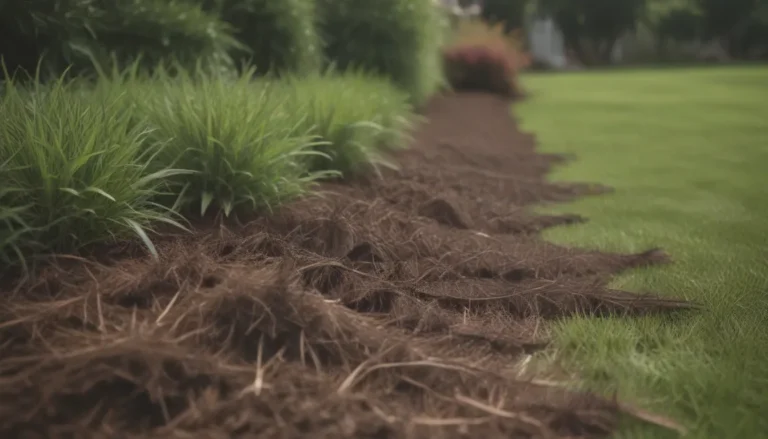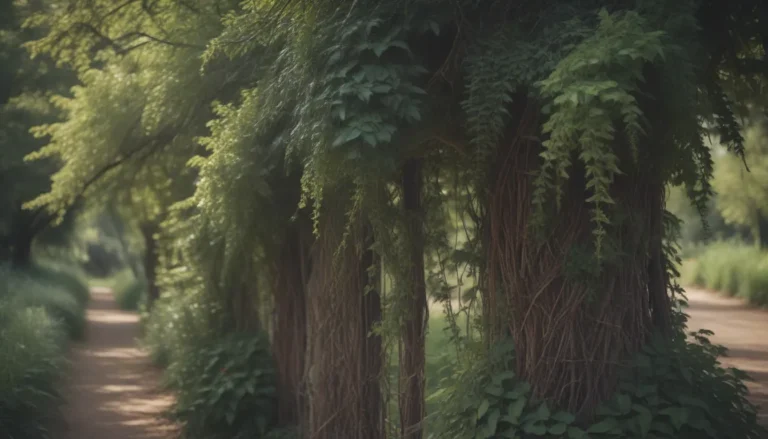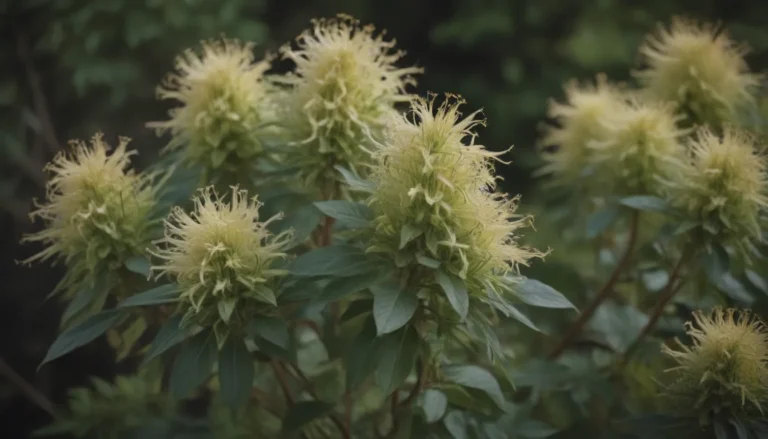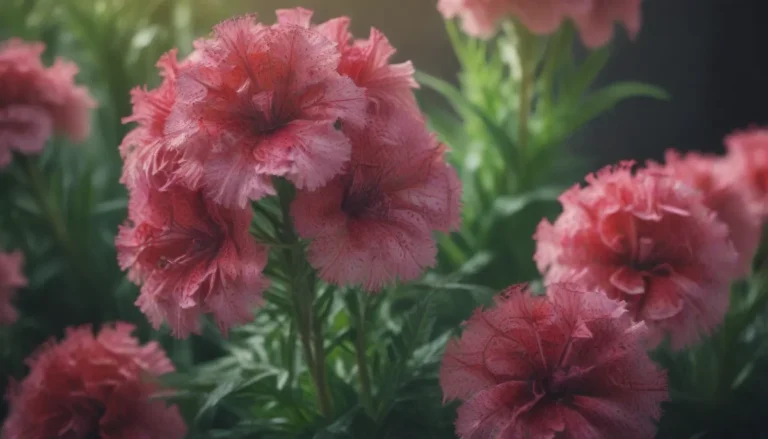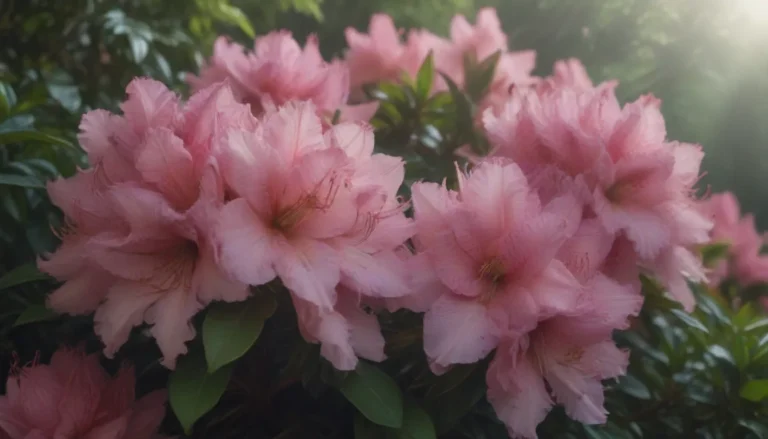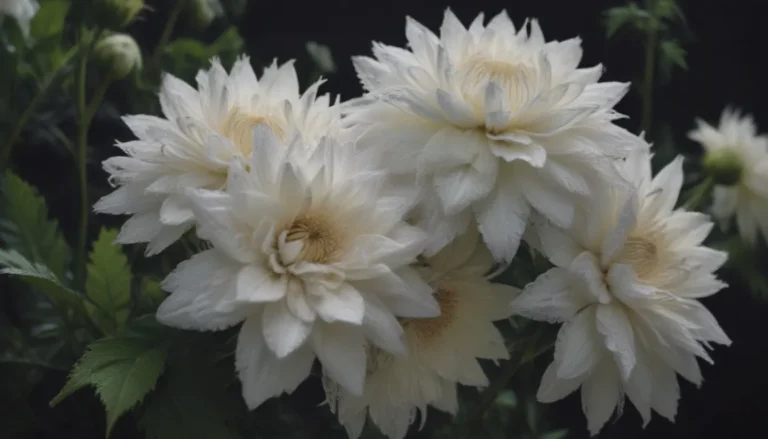Increasing Privacy in Your Yard: A Comprehensive Guide to Plants and Shrubs
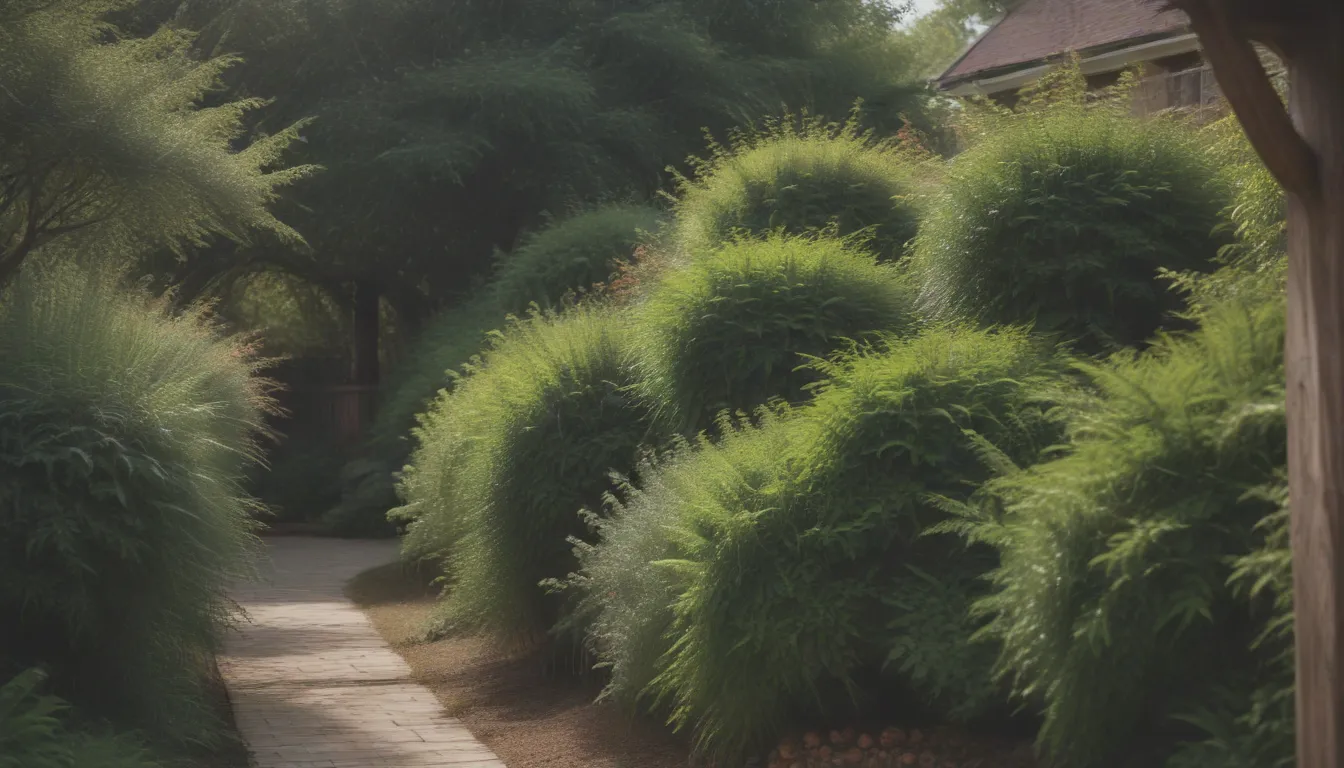
When it comes to creating privacy in your yard, building a fence or wall isn’t the only option. By strategically placing plants and shrubs, you can keep prying eyes out while adding beauty and interest to your outdoor space. Whether you prefer the formal look of neatly trimmed hedges or a more natural grouping of plants, there are numerous options to choose from. In this article, we’ll explore 20 great plants and shrubs that will add privacy to your yard, along with tips on how to care for them and where to plant them for optimal results.
Hick’s Yew
Yew is a perfect choice for privacy in your yard. Its evergreen needled foliage ensures year-round coverage, and it can be easily clipped into a neat hedge or grown in a loose border. Hick’s yew is a great option for privacy hedges due to its columnar shape and height. Make sure to provide good drainage, regular watering during droughts, and annual pruning and fertilizing for optimal growth.
- Name: Hick’s Yew
- USDA Hardiness Zones:
- Color:
- Light:
- Soil:
- Mature Size:
Emerald Green Arborvitae
Emerald Green arborvitae is a medium-sized shrub that can be shaped into a formal hedge or used to create a loose border. Its dense, green foliage provides excellent privacy, but be sure to keep the soil evenly moist, as arborvitaes are intolerant of drought.
- Name: Emerald Green Arborvitae
- USDA Hardiness Zones:
- Color:
- Light:
- Soil:
- Mature Size:
Green Giant Arborvitae
For fast-growing privacy, consider the Green Giant arborvitae. This tall shrub can grow up to 5 feet per year, making it an excellent choice for quickly establishing a privacy screen. It works best as a loose border rather than a formal hedge.
- Name: Green Giant Arborvitae
- USDA Hardiness Zones:
- Color:
- Light:
- Soil:
- Mature Size:
Common Juniper
Junipers are known for their evergreen, needle-like foliage and come in a variety of sizes and shapes. For privacy, choose a taller cultivar like ‘Hibernica,’ which can reach up to 15 feet in height. Junipers are hardy plants that thrive in full sun and well-draining soil with minimal care.
- Name: Common Juniper
- USDA Hardiness Zones:
- Color:
- Light:
- Soil:
- Mature Size:
Pfitzer Chinese Juniper
Pfitzer juniper is commonly sheared into decorative shapes, but for privacy, it’s best to let it grow naturally. Ensure good soil drainage to prevent root rot, as this variety is not as cold-hardy as common juniper.
- Name: Pfitzer Chinese Juniper
- USDA Hardiness Zones:
- Color:
- Light:
- Soil:
- Mature Size:
Mountain Laurel
If your yard is shaded, mountain laurel is an excellent choice for privacy. While it thrives in partial shade, it needs sunlight to bloom fully. Fertilize in the spring with acid-loving plant food and plant at the proper depth to avoid root rot.
- Name: Mountain Laurel
- USDA Hardiness Zones:
- Color:
- Light:
- Soil:
- Mature Size:
Privet
Privet is a classic choice for creating privacy hedges. Depending on the variety, it can be evergreen or deciduous and is often planted in rows and sheared into shape. It’s a low-maintenance option for privacy in your yard.
- Name: Privet
- USDA Hardiness Zones:
- Color:
- Light:
- Soil:
- Mature Size:
Golden Privet
For a pop of color in your privacy screen, consider the ‘Vicaryi’ cultivar of golden privet. Its bright leaves provide a striking contrast and can be used in the same way as regular privet for creating hedges or borders.
- Name: Golden Privet
- USDA Hardiness Zones:
- Color:
- Light:
- Soil:
- Mature Size:
English Holly
English holly is not only a classic choice for winter holidays but also an excellent privacy shrub with its prickly leaves. Ensure well-draining, acidic soil for optimal growth and consider planting it in areas where you want to deter trespassers.
- Name: English Holly
- USDA Hardiness Zones:
- Color:
- Light:
- Soil:
- Mature Size:
Blue Prince and Blue Princess Holly
Blue Princess and Blue Prince holly are broadleaf, evergreen shrubs that work well for privacy screens. They can be planted as hedges or grouped along a border for a more natural look.
- Name: Blue Prince and Blue Princess Holly
- USDA Hardiness Zones:
- Color:
- Light:
- Soil:
- Mature Size:
English Ivy
Vines can also be an excellent choice for adding privacy to your yard. English ivy, while invasive in some regions, is an evergreen vine that provides year-round coverage. It’s best grown on a support structure like a fence or pergola for optimal privacy.
- Name: English Ivy
- USDA Hardiness Zones:
- Color:
- Light:
- Soil:
- Mature Size:
English Ivy is invasive in North America. Fortunately, there are some non-invasive alternatives to English ivy, although these vines are not evergreen.
American Wisteria
American wisteria is a deciduous vine that provides privacy in the summer and fall. Its beautiful flowers make it a worthwhile addition to your yard, but be sure to provide sturdy support for the heavy vines.
- Name: American Wisteria
- USDA Hardiness Zones:
- Color:
- Light:
- Soil:
- Mature Size:
Dutchman’s Pipe
Dutchman’s pipe is a dense, woody vine that offers excellent privacy. While its flowers may not be as showy as wisteria, its foliage provides year-round coverage. Avoid overhead watering to prevent fungal diseases.
- Name: Dutchman’s Pipe
- USDA Hardiness Zones:
- Color:
- Light:
- Soil:
- Mature Size:
Climbing Hydrangea
One of the benefits of climbing hydrangea is its ability to thrive in shady areas, making it an excellent choice for privacy screens in less sunny spots. Its woody vines provide year-round coverage and can be trained to climb trellises or fences.
- Name: Climbing Hydrangea
- USDA Hardiness Zones:
- Color:
- Light:
- Soil:
- Mature Size:
Arctic Kiwi Vine
Arctic kiwi vine offers variegated foliage in pink, white, and green, adding visual interest to your privacy screen. This heavy feeder requires regular feeding with compost each spring to maintain its vibrant colors.
- Name: Arctic Kiwi Vine
- USDA Hardiness Zones:
- Color:
- Light:
- Soil:
- Mature Size:
Copper Beech
For privacy using trees, consider copper beech. This tree can be kept compact through pruning and is popular for creating privacy screens on small to medium-sized properties. Its foliage stays year-round, providing constant coverage.
- Name: Copper Beech
- USDA Hardiness Zones:
- Color:
- Light:
- Soil:
- Mature Size:
Canadian Hemlock
Canadian hemlock is another tree option for privacy screens, with cultivars available that stay compact without excessive pruning. ‘Aurea Compacta’ features golden foliage and stays small, making it ideal for hedges.
- Name: Canadian Hemlock
- USDA Hardiness Zones:
- Color:
- Light:
- Soil:
- Mature Size:
Eastern White Pine
Eastern white pine can be pruned to maintain a shrub form for privacy screens. Its dense foliage provides coverage year-round, making it a popular choice for creating private outdoor spaces.
- Name: Eastern White Pine
- USDA Hardiness Zones:
- Color:
- Light:
- Soil:
- Mature Size:
Maiden Grass
Tall ornamental grasses like maiden grass are excellent for adding privacy to your yard. Leave the dried canes in place over winter to provide additional interest to your privacy screen.
- Name: Maiden Grass
- USDA Hardiness Zones:
- Color:
- Light:
- Soil:
- Mature Size:
Black Bamboo
Black bamboo is a running bamboo that can quickly create a dense privacy screen. While it’s considered invasive in some regions, its vigorous growth can be an advantage for creating noise barriers and visual privacy.
- Name: Black Bamboo
- USDA Hardiness Zones:
- Color:
- Light:
- Soil:
- Mature Size:
By incorporating a variety of plants and shrubs into your yard, you can create a beautiful and private outdoor space that you’ll enjoy for years to come. Whether you prefer the formal look of hedges or the natural beauty of grouped plants, there are options to suit every style and preference. With proper care and maintenance, these privacy plants will thrive and provide the privacy you desire in your yard.
Conclusion
Creating privacy in your yard doesn’t have to involve building walls or fences. By strategically planting a variety of shrubs, trees, and vines, you can achieve privacy while adding beauty and interest to your outdoor space. From evergreen yews to colorful privets and dense arborvitaes, there are numerous options to choose from. By considering factors like sunlight, soil conditions, and mature size, you can select the plants that will thrive in your yard and provide the privacy you desire. With the tips and plant suggestions in this guide, you can transform your outdoor space into a private oasis where you can relax and unwind without worrying about prying eyes.
